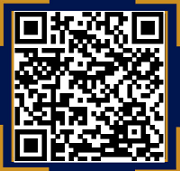Improving The Writing Skills of Vocational High School in Payakumbuh Teachers Through a Blog-Based Autobiographical Technique Workshop
Abstract
Keywords
Full Text:
PDFReferences
Adji, A. N. (2021). The fragmentation of the writing self: Using dialogic reflection to explore the writing process of an autobiographical novel. Journal of Writing in Creative Practice, 14(2), 143–159. https://doi.org/10.1386/JWCP_00019_1
Angeloch, D. (2021). The experience of the first world war in wilfred bion's autobiographical writings. Psychoanalytic Quarterly, 90(1), 7–48. https://doi.org/10.1080/00332828.2021.1847599
Breddermann, J. (2018). A model for teacher training to improve students' 21st century skills in online and blended learning: An approach from film education. In Teacher Training and Professional Development: Concepts, Methodologies, Tools, and Applications (Vol. 1, pp. 399–427). https://doi.org/10.4018/978-1-5225-5631-2.ch018
Brown, H. (2019). Trauma, language, and literature: Psycholinguistic dynamics in georges-arthur goldschmidt's autobiographical writing in response to world war II. In French Forum (Vol. 44, Issue 3, pp. 389–403). https://doi.org/10.1353/frf.2019.0032
Castillo-Cuesta, L. (2021). Using Digital Storytelling as a Strategy for Enhancing EFL Writing Skills. International Journal of Emerging Technologies in Learning, 16(13), 142–156. https://doi.org/10.3991/ijet.v16i13.22187
Chevalier, J. M. (2019). Participatory Action Research: Theory and Methods for Engaged Inquiry. In Participatory Action Research: Theory and Methods for Engaged Inquiry. https://doi.org/10.4324/9781351033268
Costantini, U. (2020). How plans occur in novices' programs: A method to evaluate program-writing skills. In SIGCSE 2020 - Proceedings of the 51st ACM Technical Symposium on Computer Science Education (pp. 852–858). https://doi.org/10.1145/3328778.3366870
Erenler, S. (2019). Utilizing argument-driven-inquiry to develop pre-service teachers' metacognitive awareness and writing skills. International Journal of Research in Education and Science, 5(2), 628–638. https://api.elsevier.com/content/abstract/scopus_id/85078308033
Fernandes, K. T. (2020). Developing Computational Thinking and Reading and Writing Skills through an Approach for Creating Games. In Proceedings - Frontiers in Education Conference, FIE (Vol. 2020). https://doi.org/10.1109/FIE44824.2020.9274065
Francis, K. (2019). Scribe hero: An online teaching and learning approach for the development of writing skills in the undergraduate classroom. Online Learning Journal, 23(2), 217–234. https://doi.org/10.24059/olj.v23i2.1531
Graham, S. (2019). Writing skills, knowledge, motivation, and strategic behavior predict students' persuasive writing performance in the context of robust writing instruction. Elementary School Journal, 119(3), 487–510. https://doi.org/10.1086/701720
Groenland, E. (2019). Qualitative methodologies and data collection methods: Toward increased rigour in management research. In Qualitative Methodologies and Data Collection Methods: Toward Increased Rigour In Management Research. https://doi.org/10.1142/11449
Haidari, M. (2020). The use of social media and wikis in teaching writing skills. International Journal of Interactive Mobile Technologies, 14(16), 168–179. https://doi.org/10.3991/ijim.v14i16.15531
Imaniah, I. (2019). The student's academic writing skill in terms of academic procrastination, self esteem and reading habit at Muhammadiyah University of Tangerang. Asian EFL Journal, 24(4), 118–127. https://api.elsevier.com/content/abstract/scopus_id/85068610788
Ismail. (2020). Blog-based mathematics learning devices. In Journal of Physics: Conference Series (Vol. 1517, Issue 1). https://doi.org/10.1088/1742-6596/1517/1/012094
Kayaalp, F. (2020). A search for a method to improve critical thinking skills in social studies teaching: Writing-to-learn. Review of International Geographical Education Online, 10(3), 400–430. https://doi.org/10.33403/rigeo.719222
Kocak, O. (2021). The mediating role of critical thinking and cooperativity in the 21st century skills of higher education students. Thinking Skills and Creativity, 42. https://doi.org/10.1016/j.tsc.2021.100967
Köller, O. (2019). Writing skills in English as a foreign language in upper secondary school. Zeitschrift Fur Erziehungswissenschaft, 22(6), 1281–1312. https://doi.org/10.1007/s11618-019-00910-3
Li, F. (2021). Why Women Write: The Evolution of Narrative Voice in Autobiographical Travel Writing from Margery Kempe to Mary Wollstonecraft. Journal of English Language and Literature, 67(1), 135–151. https://doi.org/10.15794/jell.2021.67.1.007
Lillie, K. (2022). Power relations, preservation and voice. Introducing the special issue on writing histories of education with autobiographical materials. Paedagogica Historica, 58(3), 321–328. https://doi.org/10.1080/00309230.2022.2065643
Mahgoub, M. (2022). Writing Sexuality in the Autobiographical Form A Reflection of Mona Prince's Novel So You May See. Annali Di Ca Foscari Serie Orientale, 58(1), 151–181. https://doi.org/10.30687/AnnOr/2385-3042/2022/01/006
Michailidis, N. (2022). Examining the effect of interaction analysis on supporting students' motivation and learning strategies in online blog-based secondary education programming courses. Interactive Learning Environments, 30(4), 665–676. https://doi.org/10.1080/10494820.2019.1678487
Painitz, S. (2019). Trauma, memory and the act of writing in ruth klüger's autobiographical project. In Forum for Modern Language Studies (Vol. 55, Issue 4, pp. 380–396). https://doi.org/10.1093/fmls/cqz018
Parra, G. L. (2019). Automated writing evaluation tools in the improvement of the writing skill. International Journal of Instruction, 12(2), 209–226. https://doi.org/10.29333/iji.2019.12214a
Porto, C. L. (2019). Writing about oneself and a disease: A study on biographical and autobiographical work by survivors of hansen's disease. Historia, Ciencias, Saude - Manguinhos, 26(3), 899–915. https://doi.org/10.1590/s0104-59702019000300010
Razak, N. (2018). The influence of entrepreneurship education towards the entrepreneurial intention in 21st century learning. Journal of Social Sciences Research, 2018, 502–507. https://doi.org/10.32861/jssr.spi6.502.507
Saade, S. P. (2021). Samurai, Crows and Coffee: Autobiographical Writing, World Markets and Stereotypes in Cuaderno de Tokio. Confluencia, 36(2), 116–128. https://doi.org/10.1353/cnf.2021.0017
Selwyn, R. (2020). Developing technical report writing skills in first and second year engineering students: a case study using self-reflection. Higher Education Pedagogies, 5(1), 19–29. https://doi.org/10.1080/23752696.2019.1710550
Shahsavar, Z. (2019). Diagnosing English learners' writing skills: A cognitive diagnostic modeling study. Cogent Education, 6(1). https://doi.org/10.1080/2331186X.2019.1608007
Tanskanen, I. (2023). Professional autobiographical process including identity work in creative writing practices. Capitale Culturale, 2023, 33–48. https://doi.org/10.13138/2039-2362/3131
Tusyanah, T. (2019). Utilizing local guide to improve efl students' english writing skill: An outdoor learning process strategy. Asian EFL Journal, 23(3), 22–51. https://api.elsevier.com/content/abstract/scopus_id/85068407856
Valtonen, J. (2021). The Health Benefits of Autobiographical Writing: An Interdisciplinary Perspective. Journal of Medical Humanities, 42(4). https://doi.org/10.1007/s10912-020-09631-9
Vargas, C. G. J. (2021). The autobiographical story: Narrating experience as an exercise in writing about oneself and the social construction of reality. Revista de Filosofia (Chile), 78, 79–95. https://doi.org/10.4067/S0718-43602021000100079
Wale, B. D. (2021). Using inquiry-based writing instruction to develop students' academic writing skills. Asian-Pacific Journal of Second and Foreign Language Education, 6(1). https://doi.org/10.1186/s40862-020-00108-9
Ying, Y. (2019). Translating psychological space in autobiographical writing. Translation and Literature, 28(2), 200–216. https://doi.org/10.3366/tal.2019.0385
DOI: https://doi.org/10.26877/e-dimas.v15i2.16097
Refbacks
- There are currently no refbacks.

This work is licensed under a Creative Commons Attribution-ShareAlike 4.0 International License.
E-Dimas: Jurnal Pengabdian kepada Masyarakat has been indexed in:
E-Dimas: Jurnal Pengabdian kepada Masyarakat by LPPM Universitas PGRI Semarang is licensed under a Creative Commons Attribution-ShareAlike 4.0 International License.Based on a work at http://journal.upgris.ac.id/index.php/e-dimas.






















